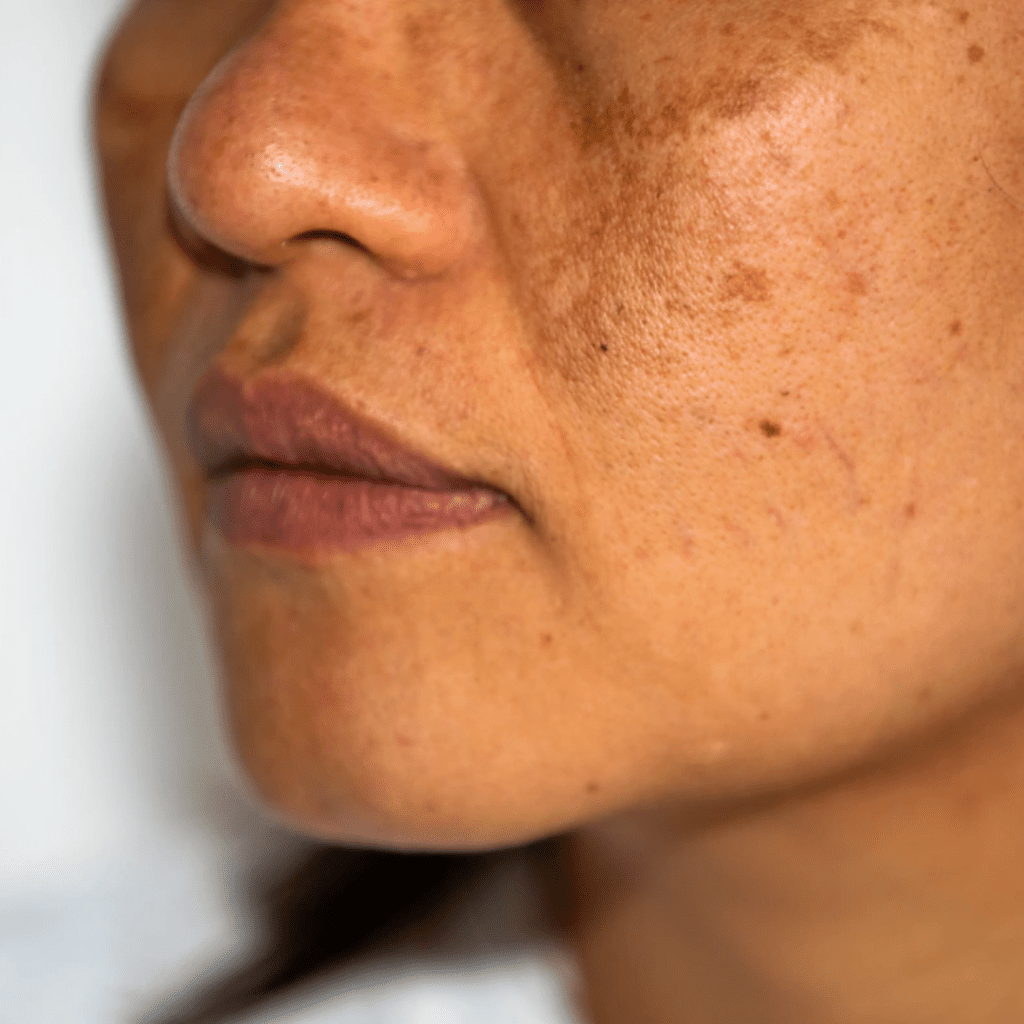Understanding Ozempic: TikTok’s latest weight loss trend
7 April 2024 by Omniya Clinic
at Omniya Clinic in London
If you pay close attention to your skin, it’s likely you’ll have noticed small areas of discolouration and darkening – and we’re not talking freckles.
Pigmentation, or hyperpigmentation, refers to the colouring of the skin. This discolouration occurs due to an increase in the number of pigment-producing cells in the skin, or the pigmented substance they produce (melanin).
Pigmentation can affect your entire body or appear localised as darkened spots or patches in one area. With varied causes including UVA damage and fluctuating hormones, pigmentation affects people of all skin types. However, those with dark skin are ordinarily more affected by hyperpigmentation marks than those with a lighter skin tone because skin pigmentation is stronger in dark skin.

While hyperpigmentation is generally harmless, dark patches on skin are often more of a cosmetic issue for most individuals. Hyperpigmentation is caused by an increase in melanin, which is the natural pigment that gives our skin, hair and eyes their colour.
A number of factors can accelerate melanin production, including particular medical conditions and medications. However, the main causes of pigmentation are sun exposure, hormonal influences, age, skin injuries and inflammation.
Sun exposure. Excessive sun exposure over time results in the over-production of melanin, leading to pigment spots on the skin. Melanin acts as your skin’s natural defence against damaging UV rays. However, sun exposure can disrupt this process and create hyperpigmentation.
As the primary cause of hyperpigmentation, sun exposure will also exacerbate existing dark spots, making age spots, melasma (facial pigmentation) and post-inflammatory hyperpigmentation spots even darker.
Hormones. Melasma is the most common form of facial pigmentation with 90 percent of sufferers being female. In many cases, melasma is thought to be triggered by pregnancy, hormonal medication e.g., the contraceptive pill and medical conditions that actively alter hormone levels.
Medication. Chemotherapy drugs, antibiotics, tricyclic antidepressants, antimalarials and anti-seizure drugs have each been proven to trigger hyperpigmentation. More severe causes of hyperpigmentation include hemochromatosis and Addison’s disease.
Disease. Hyperpigmentation is symptomatic of several illnesses including certain gastrointestinal and autoimmune diseases, metabolic disorders and vitamin deficiencies.
Age. If you are middle-aged or older, you’ve probably noticed changes to your skin. As your skin ages, the number of melanin-producing cells, known as melanocytes, decrease. As a result, you may develop areas of the skin that are darker than your normal tone due to age.
Skin injuries. Post-inflammatory hyperpigmentation occurs when skin injuries and inflammation begin to heal, e.g., burns, cuts, acne, eczema, rosacea and chemical exposure.
Our dedicated team of dermatologists will meet with you for a full consultation. During this appointment, we’ll assess the condition of your skin and the depth of your pigmentation, recommending potential procedures to clear or reduce the discolouration.
Following the initial examination, we’ll discuss your options with you before creating a personalised plan for your treatment.
The results of IPL treatments are permanent, but does not prevent problems from occurring. Results are improved with proper maintenance, protecting your skin from sun damage.
A course can be anything from four to six sessions, with these carried out roughly every four weeks.
No, some contain glycolic acid which is good for acne scarring. Other peels have lactic acid which tends to work better for hyperpigmentation.




If you are an existing patient, we kindly request that you email your request through to hello@omniya.co.uk rather than filling out the contact form.
"*" indicates required fields